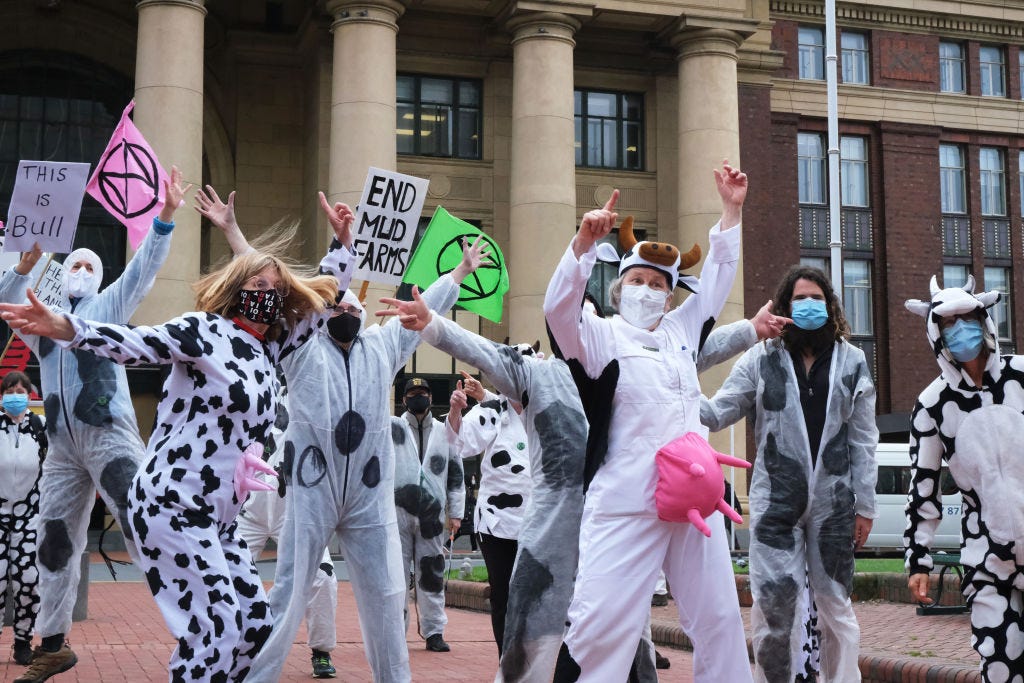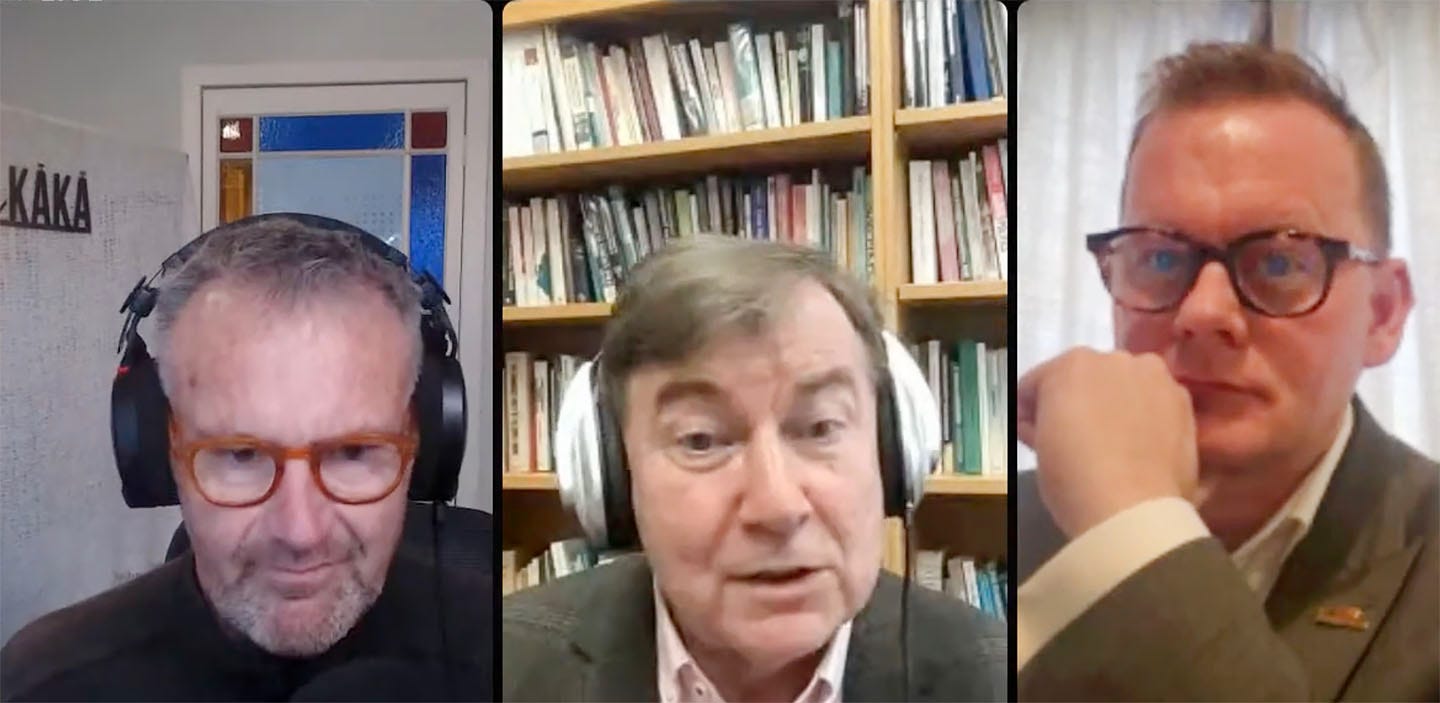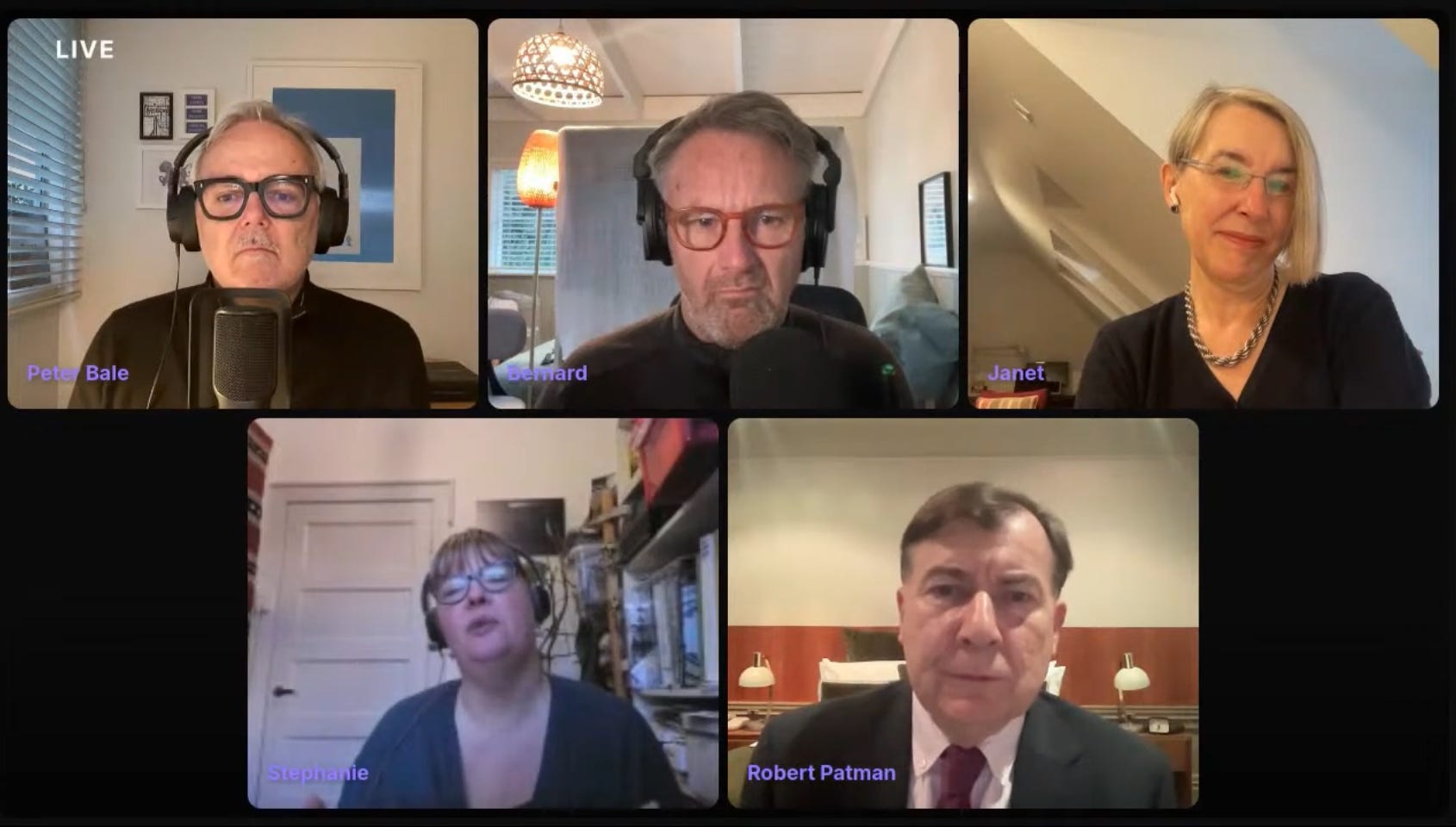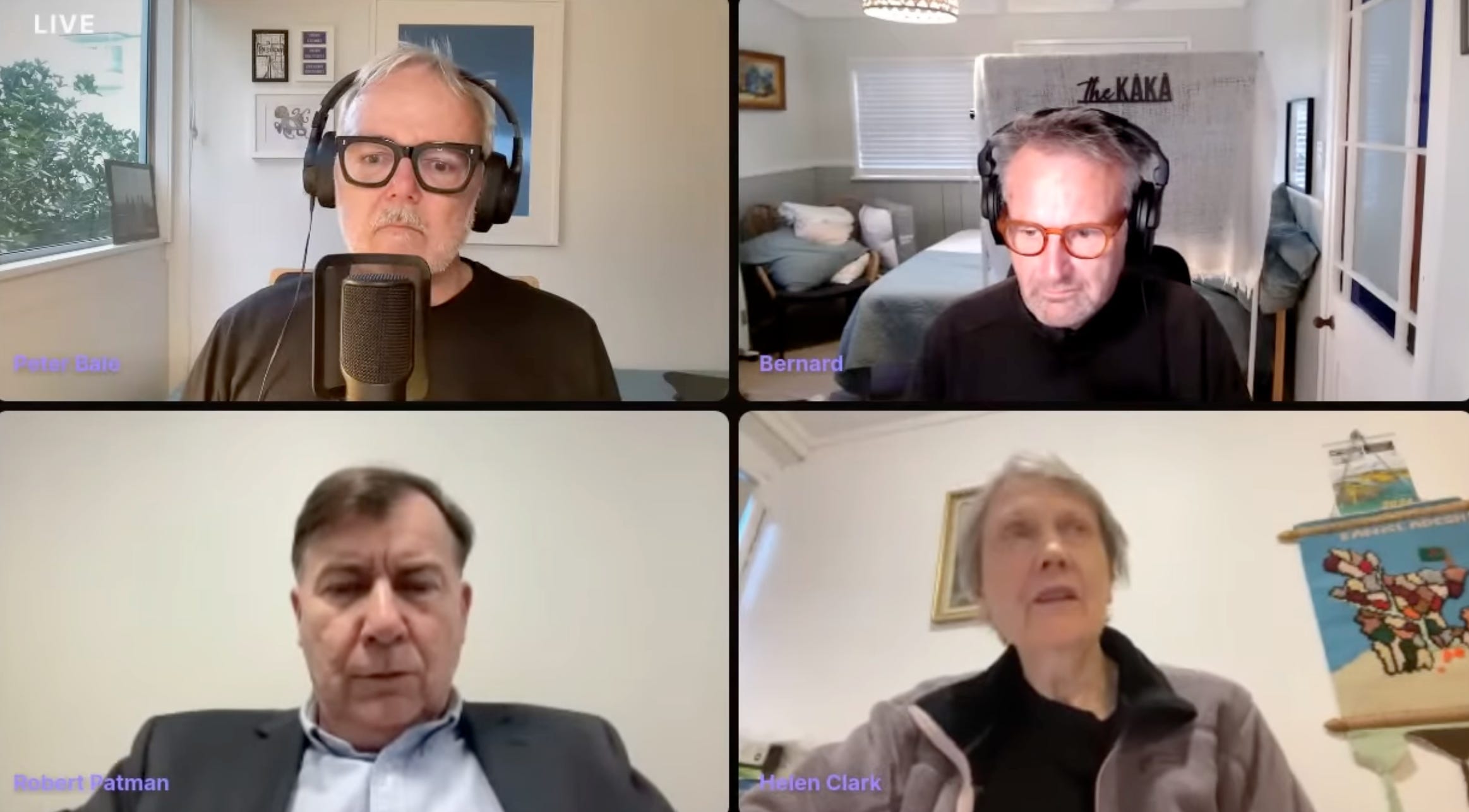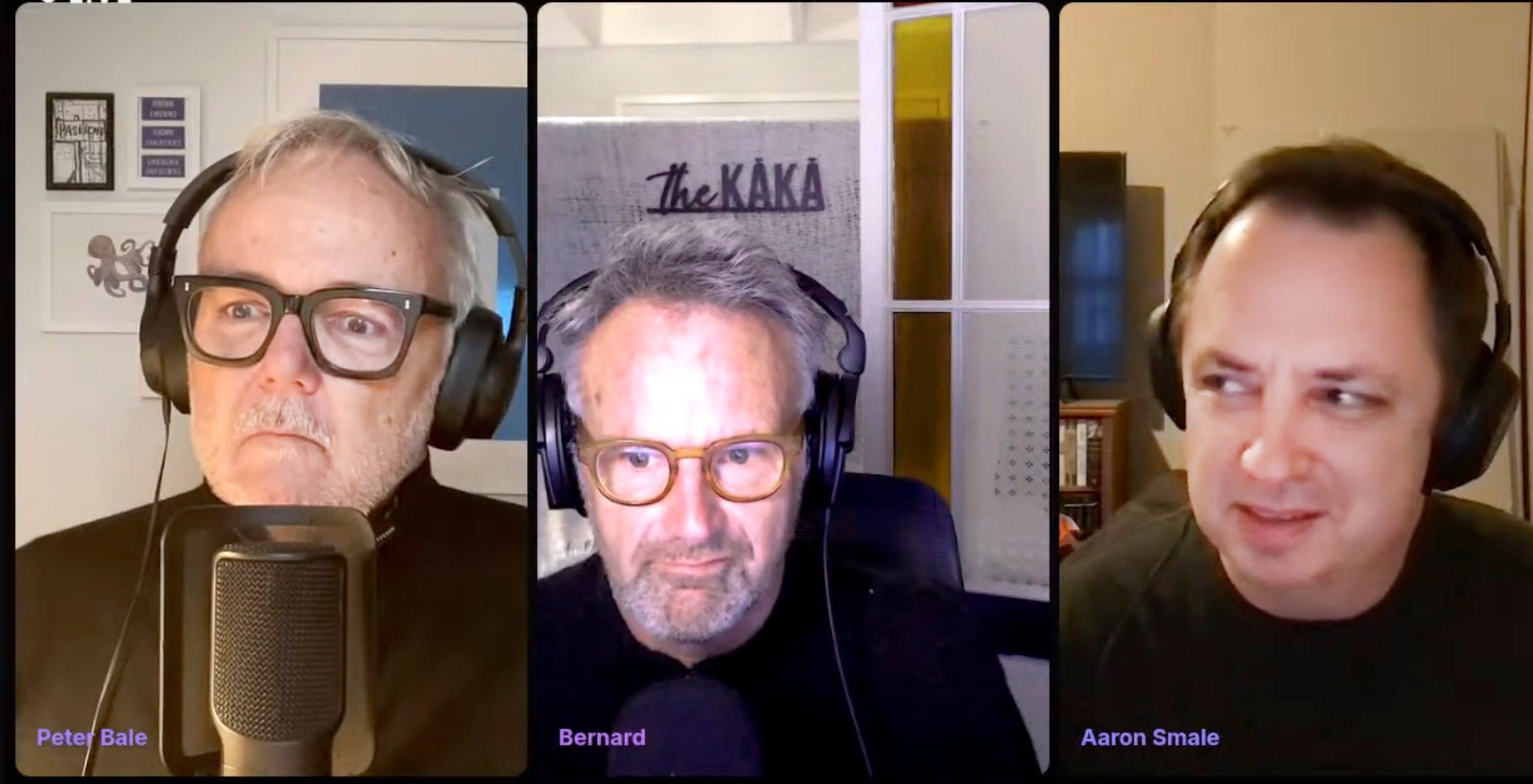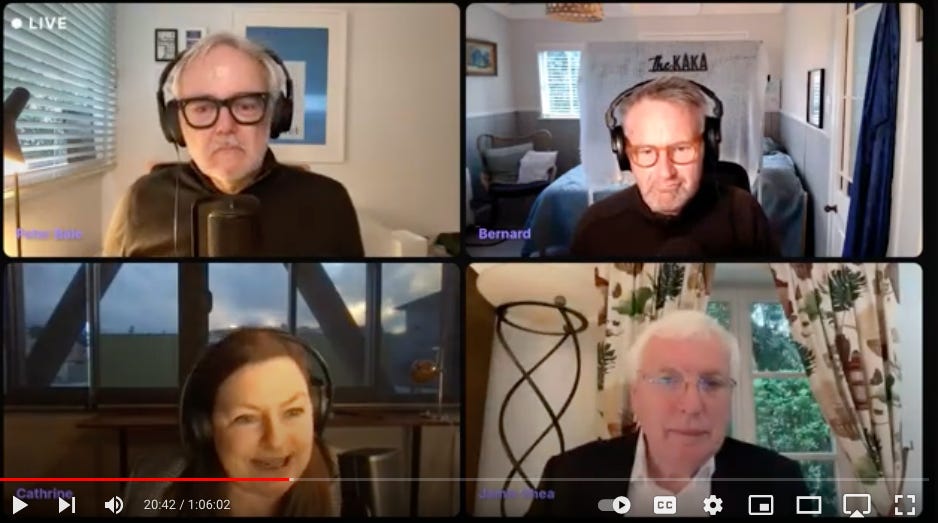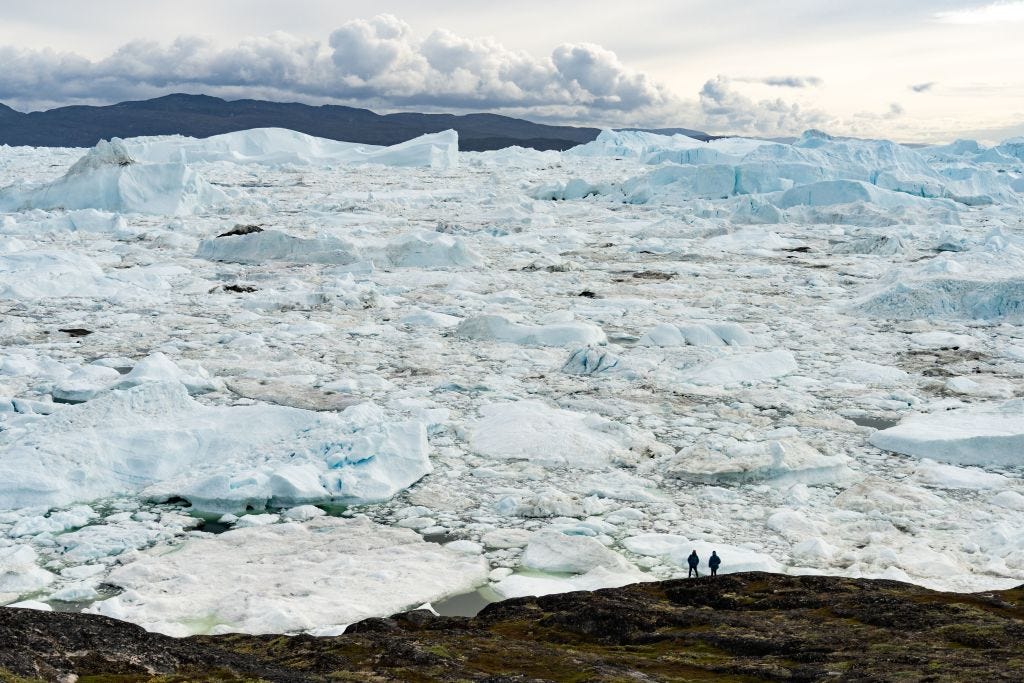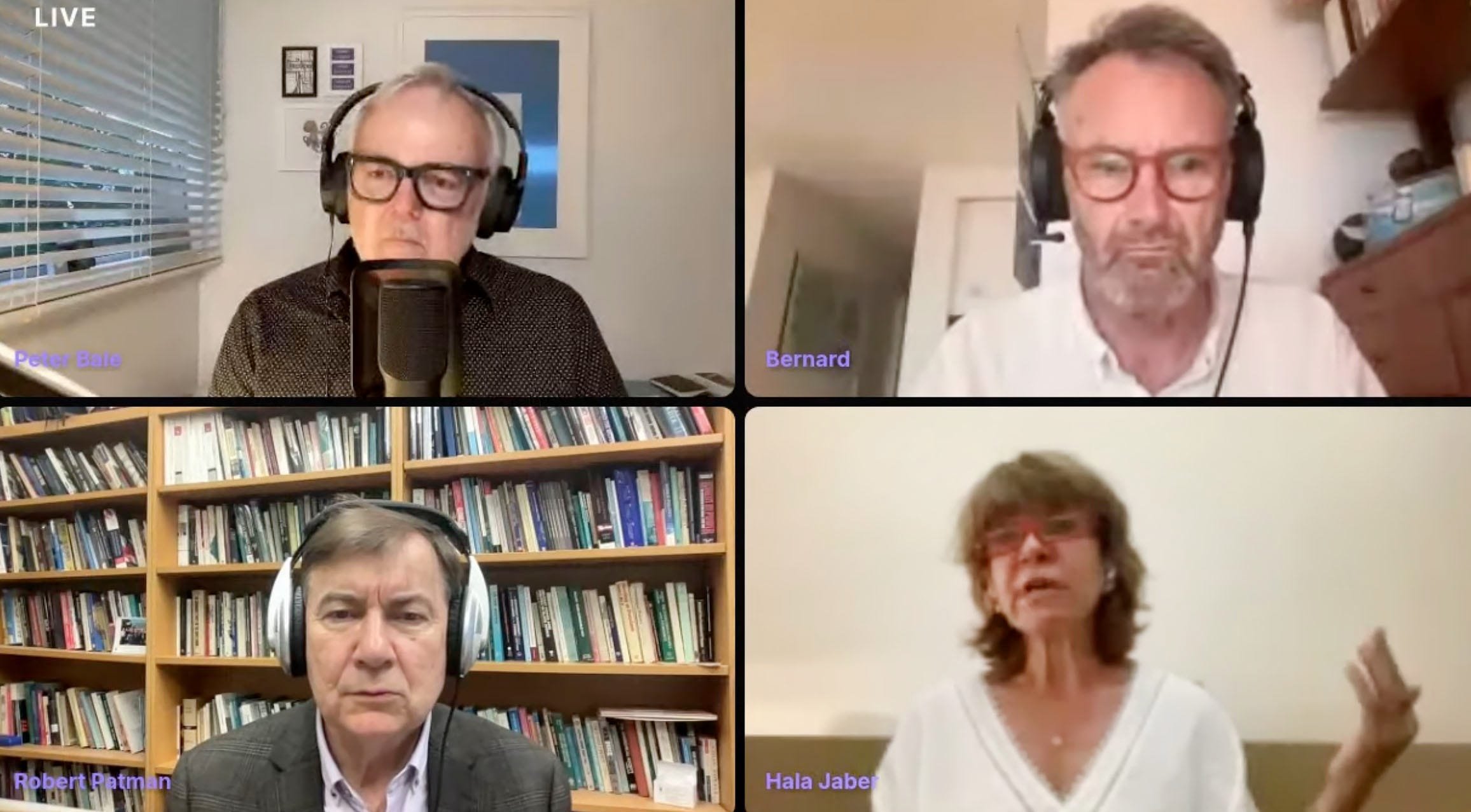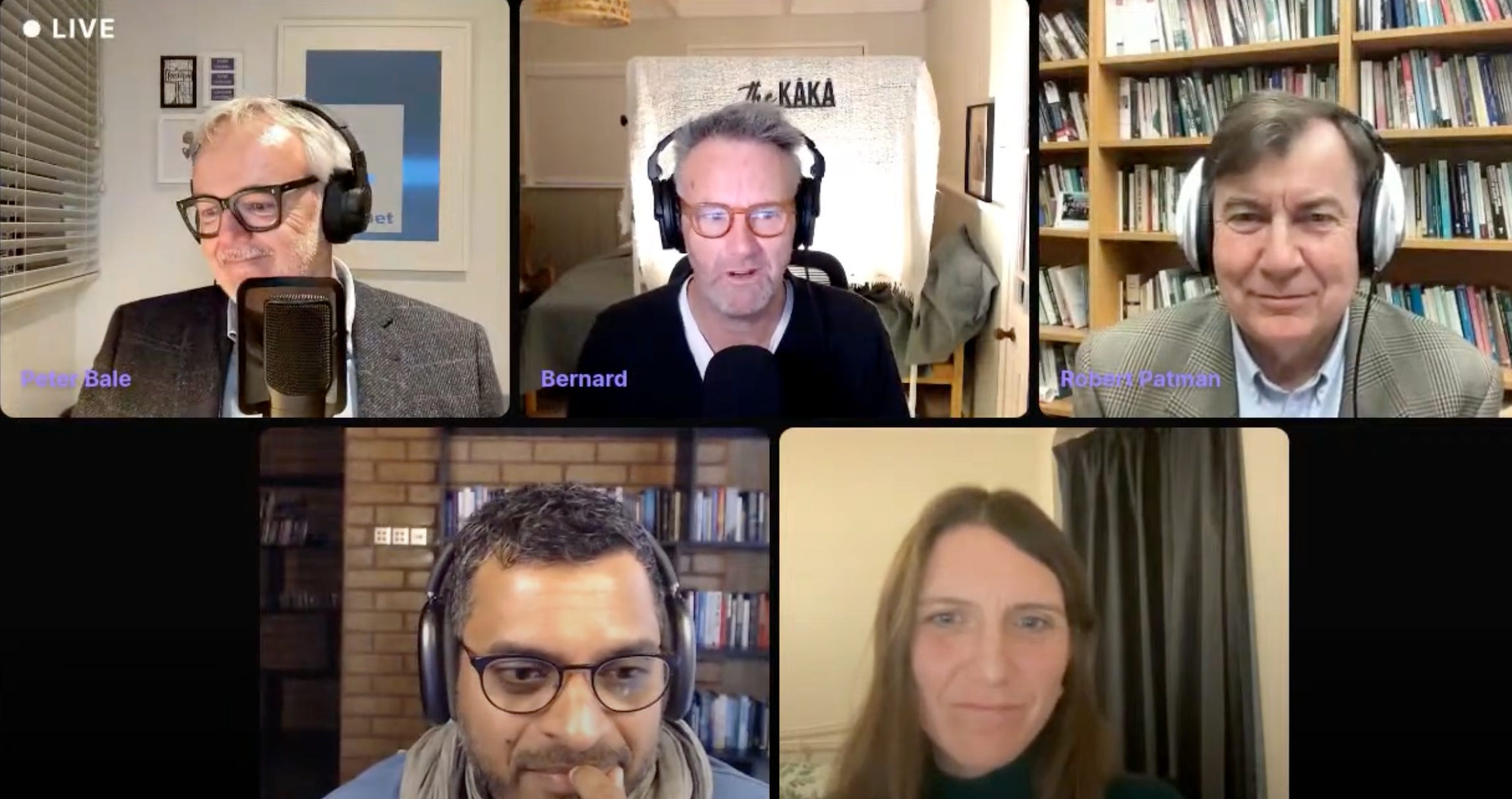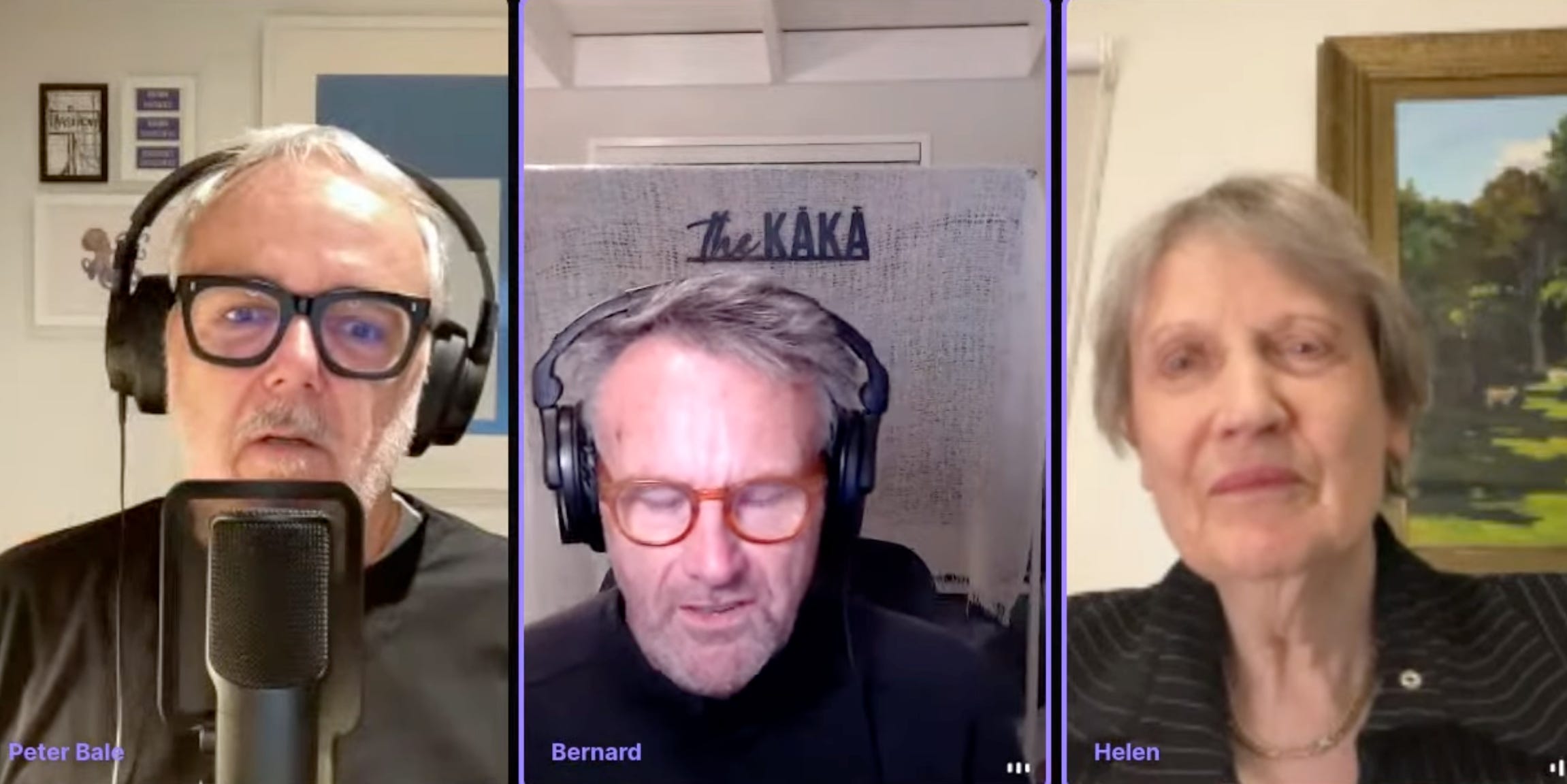Weekly Climate Wrap: The methane mess
Description
TL;DR: Here’s the top six news items of note in climate news for Aotearoa-NZ this week, and a discussion above between Bernard Hickey and The Kākā’s climate correspondent Cathrine Dyer:
* A new study published this week in the journal Frontiers in Science shows methane emissions are growing much faster than projected and that rapid reductions are necessary if the world is to stay on track to limit warming to 1.5˚C or 2˚C.
* The research emerges at a critical time for Aotearoa as two reviews of methane targets are currently underway, one by the Climate Change Commission and another by a panel newly formed by the Coalition Government.
* The researchers argue that the alternative climate metric GWP* has been misused to support inequitable claims that current levels of methane emissions cause ‘no additional warming’. The coalition Government’s newly formed panel, tasked with reviewing the country’s methane target has the principle of ‘no additional warming’ embedded in its terms of reference, suggesting that the Government, and an agricultural industry that is eagerly anticipating a downward revision to its targets as a result of the panel’s work, are unlikely to welcome the latest research.
* Air New Zealand announced that it was abandoning its 2030 targets and withdrawing from the Science Based Targets Initiative (SBTi) this week. It is the first global airline to join the headlong rush out of the SBTi as 2030 gets uncomfortably close.
* The SBTi itself released a set of reports as a first step toward reviewing its standards, after indicating earlier this year that it was considering reversing its advice against the corporate use of voluntary carbon offsets to achieve Scope 3 emissions targets, causing uproar and a staff revolt. Far from clarifying the organisation’s position, the reports find ‘mixed evidence’ for the effectiveness of carbon offsets.
* Pressure is growing to provide more ways for organisations and states to obscure the confronting reality that they are failing to take sufficient action to remain on track to achieve Paris Agreement targets.
(See more detail and analysis below, and in the video and podcast above. Cathrine Dyer’s journalism on climate and the environment is available free to all paying and non-paying subscribers to The Kākā and the public. It is made possible by subscribers signing up to the paid tier to ensure this sort of public interest journalism is fully available in public to read, listen to and share. Cathrine wrote the wrap. Bernard edited it. Lynn copy-edited and illustrated it.)
1. Methane emissions under increasing scrutiny
New research out this week shows anthropogenic methane emissions have been growing much faster than projected, particularly since 2006. They have been responsible for about half of planetary warming between the pre-industrial period and the 2010s but have received far less attention compared to carbon dioxide.
It is now becoming increasingly clear that reducing methane emissions is a critical component, alongside decarbonisation, of achieving global climate goals.
The article by lead author Professor Drew Shindell of Duke University and a group of 14 other international climate scientists says that methane emissions need to drop rapidly, if we are to limit global warming to 1.5˚C or 2˚C.
2. Research comes at critical time for NZ
The study has emerged at a critical time for policymakers in Aotearoa.
Two reviews of our methane emissions targets are currently under way – one by the Climate Change Commission and another by a separate panel newly formed by the Government as part of their coalition agreement.
The terms of reference for that panel are to provide advice on what the target should be that ‘is consistent with the principle of no additional warming’. That framing has been called into question by the latest research.
The researchers argue that the alternative climate metric GWP* has used to support the claim that current levels of methane emissions are not a pressing issue requiring targeted action.
The GWP (Global Warming Potential) index was developed to allow comparisons of the global warming impacts of different gases, in order to decide how much effort should be put into reducing the levels of different greenhouse gases. It compares the ability of the various gases to trap extra heat in the atmosphere over time relative to carbon dioxide (CO2). GWP* is a new measure that takes account of the different atmospheric lifetimes of short- and long-lived gases, better capturing their different warming effects.
Responding to the study, Professor Robert McLachlan, Distinguished Professor in Applied Mathematics at Massey University commented,
"Shindell et al. suggest that the alternative climate metric, GWP* has been misused to argue that current levels of methane emissions cause 'no additional warming', and that this 'ignores emissions responsible for roughly half the warming to date and appears to exempt current high methane emitters from mitigation. This is neither equitable nor consistent with keeping carbon budgets within reach.' Two of the five members of the new methane review panel were authors of the original GWP* study.
3. NACT Govt has latched onto that narrative like a life raft
The narrative of ‘no additional warming’ was sold to the current coalition government ahead of the last election and they appear to have swallowed it hook, line, and sinker.
The agriculture industry has been hoping to reel in reduced methane targets, just as the world wakes up to the increasing threat posed by short-lived gases.
The new research will likely go down like a cup of cold sick across the current government and the agriculture industry, as their preferred narrative comes under fire by an influential group of international climate scientists.
The article suggests that the likely source of the recent and abrupt acceleration in methane emissions is from wetlands, in a worrying response to increased warming, along with additional contributions from fossil fuel use. Both of these results mean that anthropogenic emissions must decrease more than expected to reach warming goals.
The researchers support a split gas approach, as has been implemented in Aotearoa New Zealand, saying that a net-zero target specifically for methane is neither necessary nor plausible. Acknowledging the additional difficulties of reducing agricultural methane emissions, they nonetheless suggest a global sectoral target that reduces emissions 20% by 2030 and 30% by 2050.
Also worth reading is a viewpoint on the article that accompanied its publication in the Frontiers in Science journal, penned by Climate Change Commissioner Andy Reisinger. Reisinger points out that the sectoral targets above were derived from scenarios that assumed rapid and deep cuts in all emissions from 2020 onwards. As these have not yet materialised, future emissions reductions, including those for agricultural methane may need to be even stronger than the article suggests. He also emphasises the relationship between methane (CH4) and carbon dioxide (CO2) reductions, the value judgements that drive their related targets and explains why competing narratives about methane can be challenging for policymakers to parse
The many connections between CH4 and CO2 that Shindell et al. discuss also make clear that if individual countries or sectors do adopt separate emission targets for long- and short-lived gases, such targets cannot be set in isolation from each other to achieve an overall climate goal. How we slice the global emissions pie to serve a highly uneven world depends on value judgments about equity and pathways for sustainable development, not physics. Separate targets for short- and long-lived gases provide greater transparency in emissions and actual climate outcomes but also imply dual political fronts for lobbying and renegotiation. Separate targets also reduce flexibility for accommodating underachievement in individual sectors and therefore increase the risk of failure. Whether combined or separate targets lead to a more durable and ambitious climate response overall will thus depend on country- and sector-specific circumstances as well as uncertainty about future technologies to achieve individual targets decades into the future.
A <a target="_blank" href="https://www.scimex.org/newsfeed/to-tackle-climate-change-we-need

